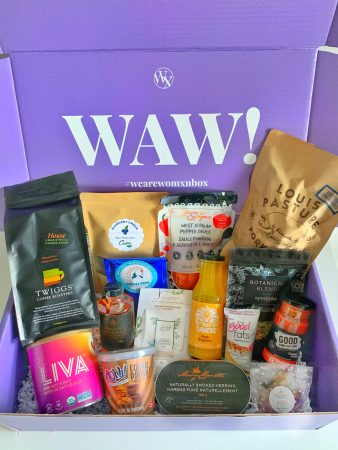
Meet Marissa Bronfman, a Canadian vegan impact investor
By Nithya Caleb
Business Operations Plant-based foods Editor pick Kizmet Impact Capital plant based foods Vegan Women's Summit Women in food Women investors Women-owned businesses
Marissa Bronfman is a Canadian vegan impact entrepreneur-turned-impact investor. She is the chief brand officer of the recently launched Kizmet Impact Capital. Kizmet has offices in Toronto and Vancouver and is focused on investing in impact businesses in three key areas: health, food, and technology, while also prioritizing diversity, equity, and inclusivity throughout its portfolio.
Marissa previously founded Shot of Gold, a superfood social impact business, and We Are Women, which empowers diverse women entrepreneurs in Canada’s food and beverage industry. She is scheduled to speak at the upcoming Vegan Women’s Summit in April. I spoke to her about Kizmet and the need for more women investors in the food sector.
What inspired you to join the Kizmet Impact Capital team to launch the company, and when did it launch?
MB: Funny enough, it was actually thanks to kismet, or destiny, that I joined Kizmet. I was introduced to the team as an entrepreneur through another female venture capitalist. After many years as a serial impact entrepreneur, I’m thrilled to now be on the other side of the table helping more women succeed.
What are your focus areas?
MB: Kizmet is focusing on investing in impact businesses in three key areas: health tech, clean tech and my personal favourite, plant-based food and beverage. I live a plant-based, cruelty-free lifestyle and have built two of my own plant-based businesses, one in India called Bowl Bar and another in Canada, Shot of Gold. I believe deeply that the transition to plant-based eating has the power to transform the world. I have also always been passionate about empowering women entrepreneurs. Last year, I launched an initiative, We Are Women, which was previously featured by Food In Canada, that spotlighted 15 Black, Indigenous, LGBTQ2S+ and women of colour entrepreneurs in the food and beverage space from across Canada. Although women receive less than three per cent of all venture capital funding, statistically we know women-owned businesses perform better, often while doing good at the same time.
What kinds of companies have you invested in?
MB: We are currently in the process of evaluating and doing due diligence on a range of companies. We have already spoken to well over 100 and have built a strong pipeline. We evaluate these companies on a variety of metrics that look at their products, services, teams, and, of course, their impact – this is key. We are seeking companies that are not only profitable, but also purpose-driven.
What are your future plans?
MB: Right now we are gearing up for the Vegan Women’s Summit in Los Angeles on April 8. It is crucial that we support these communities in the U.S. as well as in Canada because we are actively engaging investors and potential portfolio companies on both sides of the border. This will be a very exciting, mission-aligned platform for us. I will be joining inspiring entrepreneurs and investors from around the world to speak about women in venture capital and funding women entrepreneurs.

How are women creating impact in the plant-based food sector?
MB: From what I’ve witnessed, most women entrepreneurs that are building plant-based food businesses are doing so with impact built right into the business model. They are thinking about the impact their product will have on people’s health and the environment. Many are also thinking about how to create communities and of ways to leverage their brand to promote positive initiatives with these communities. We also see that women founders and executives will often naturally ensure more diversity and inclusion in their companies.
Why does diversity matter in the food sector?
MB: Representation matters. Consumers are incredibly diverse with different needs. However, large food companies have historically been run by men, mostly white. It’s important that we are building new businesses with new leaders who understand their consumers. When we see successful companies owned and operated by women and minorities, those businesses tend to be more responsible to people and the planet, by many different metrics.
Why do we need more women investors in the food sector?
MB: Women account for less than six per cent of all venture capital partners and women founders receive less than three per cent of all venture capital funding. Yet, women make up 51 per cent of the global population and account for more than 80 per cent of household purchasing decisions. More women investors means more women entrepreneurs get funded, and that means more sustainable, diverse, purpose-driven businesses helping create healthy people and a healthier planet.
Print this page